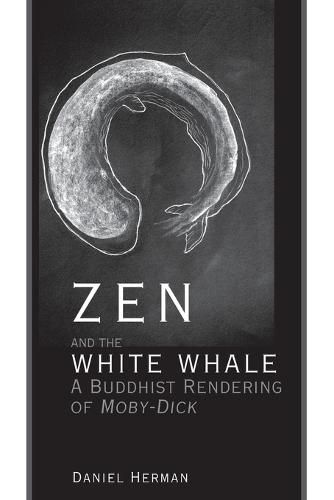Readings Newsletter
Become a Readings Member to make your shopping experience even easier.
Sign in or sign up for free!
You’re not far away from qualifying for FREE standard shipping within Australia
You’ve qualified for FREE standard shipping within Australia
The cart is loading…






In this book, Herman argues that Herman Melville may have been aware of Buddhist thought far earlier than previously considered. Scholars have long known of Melville’s interest in Buddhism in the final decades of his life (seen in the short poem Buddha, and perhaps even the surname of his final protagonist, Billy Budd ). But as early as 1847, Melville had knowledge of the grand lama of Thibet, mentioning him in that year’s Omoo. And the five years directly preceding the composition and publication of Moby-Dick (1844-1849) coincided with the period during which interest in Buddhism turned from an obscure curiosity among American intellectuals to formal research among religious scholars in the United States. In Moby-Dick’s wide philosophical musings and central narrative arch, Herman finds a philosophy very closely aligned specifically with the original teachings of Zen Buddhism. In exploring the likelihood of this hitherto undiscovered influence, Herman looks at works Melville is either known to have read or that there is a strong likelihood of his having come across, as well as offering a more expansive consideration of Moby-Dick from a Zen Buddhist perspective, as it is expressed in both ancient and modern teachings. But not only does the book delve deeply into one of the few aspects of Moby-Dick’s construction left unexplored by scholars, it also conceives of an entirely new way of reading the greatest of American books-offering critical re-considerations of many of its most crucial and contentious issues, while focusing on what Melville has to teach us about coping with adversity, respecting ideological diversity, and living skillfully in a fickle, slippery world.
$9.00 standard shipping within Australia
FREE standard shipping within Australia for orders over $100.00
Express & International shipping calculated at checkout
In this book, Herman argues that Herman Melville may have been aware of Buddhist thought far earlier than previously considered. Scholars have long known of Melville’s interest in Buddhism in the final decades of his life (seen in the short poem Buddha, and perhaps even the surname of his final protagonist, Billy Budd ). But as early as 1847, Melville had knowledge of the grand lama of Thibet, mentioning him in that year’s Omoo. And the five years directly preceding the composition and publication of Moby-Dick (1844-1849) coincided with the period during which interest in Buddhism turned from an obscure curiosity among American intellectuals to formal research among religious scholars in the United States. In Moby-Dick’s wide philosophical musings and central narrative arch, Herman finds a philosophy very closely aligned specifically with the original teachings of Zen Buddhism. In exploring the likelihood of this hitherto undiscovered influence, Herman looks at works Melville is either known to have read or that there is a strong likelihood of his having come across, as well as offering a more expansive consideration of Moby-Dick from a Zen Buddhist perspective, as it is expressed in both ancient and modern teachings. But not only does the book delve deeply into one of the few aspects of Moby-Dick’s construction left unexplored by scholars, it also conceives of an entirely new way of reading the greatest of American books-offering critical re-considerations of many of its most crucial and contentious issues, while focusing on what Melville has to teach us about coping with adversity, respecting ideological diversity, and living skillfully in a fickle, slippery world.